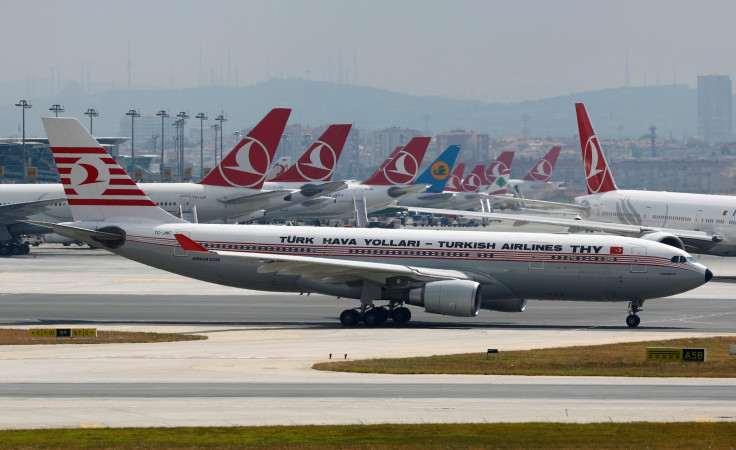Is Flying Safe? Credible Terror Threats Cited In Airplane Electronics Ban

The Department of Homeland Security’s decided to bar larger electronic devices from the passenger cabins of planes leaving from 10 Middle Eastern and African airports because of intelligence indicating Islamic State group associates are working to smuggle explosives onto U.S.-bound flights, DHS said Tuesday.
DHS banned laptops, tablets, e-readers, cameras, portable DVD players, travel printers/scanners, and “electronic game units larger than a smartphone” from flights headed to and from the United States to 10 airports in Egypt, Jordan, Kuwait, Morocco, Qatar, Saudi Arabia, Turkey and the United Arab Emirates, and gave airlines 96 hours to comply. Cellphones and medical devices are exempt from the ban.
Read: What Can I Take On A Plane? Royal Jordanian Bans Most Electronics
The airports affected are:
- Queen Alia International Airport in Amman, Jordan
- Cairo International Airport
- Ataturk International Airport in Istanbul, Turkey
- King Abdul-Aziz International Airport in Jeddah, Saudi Arabia
- King Khalid International Airport in Riyadh, Saudi Arabia
- Kuwait International Airport
- Mohammed V Airport in Casablanca, Morocco
- Hamad International Airport in Doha, Qatar
- Dubai International Airport, and
- Abu Dhabi International Airport.
The banned devices, however, can be placed in checked baggage.
DHS said the ban is “risk-based” and could change in the future.
Read: US State Department Updates Mexico Travel Warning, Citing Violence In Several States
“Evaluated intelligence indicates that terrorist groups continue to target commercial aviation, to include smuggling explosive devices in various consumer items,” DHS said.
Attention all passengers ⚠️ pic.twitter.com/HCNDcjcdi1
— Royal Jordanian (@RoyalJordanian) March 21, 2017
ABC News reported the decision was based on intelligence obtained earlier this year that was deemed “substantiated” and “credible.” ABC quoted a source as saying the listed airports were not named specifically but analysts determined they were the most likely targets based on other information.
“I’ve spoken a couple times in the last week with the Department of Homeland Security about a new aviation threat," Rep. Eric Swalwell, D-Calif., told ABC. "We know that our adversaries, terrorist groups in the United States and outside the United States, seek to bring down a U.S.-bound airliner. That’s one of their highest value targets. And we’re doing everything we can right now to prevent that from happening.”
DHS said terrorist propaganda has been highlighting the 2015 attack on an Egyptian aircraft and a 2016 bombing of a plane in Somalia, the first with an explosives-packed soda can and the latter with an explosives-laden laptop.
Britain took similar action against airports in Turkey, Lebanon, Egypt, Saudi Arabia, Jordan and Tunisia, affecting devices larger than 16 centimeters (6.3 inches) in length, 9.3 cm (3.6 inches) in width and 1.5 cm (0.6 inches) in depth.
© Copyright IBTimes 2024. All rights reserved.






















